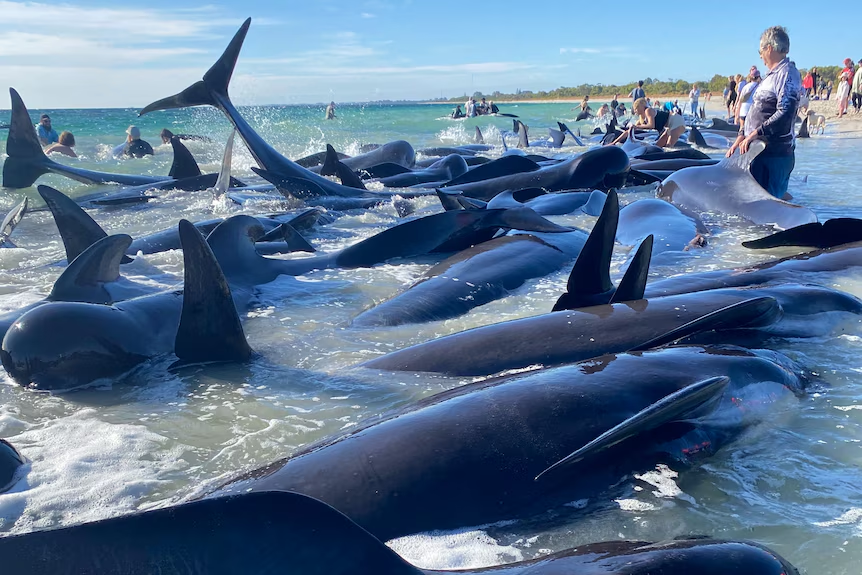Scientists in Western Australia have made a surprising discovery while studying the deaths of 128 pilot whales in two separate strandings. Over the past 18 months, these mass events have puzzled experts, who are working hard to find answers.
In July 2024, 97 whales died at Cheynes Beach near Albany, followed by 31 more at Toby Inlet near Dunsborough in April. To investigate, scientists from the Department of Biodiversity, Conservation, and Attractions (DBCA) collected samples of blood and tissue and even used CT scans to examine the whales’ heads.
According to marine scientist Dr. Holly Raudino, the focus was to find any diseases, especially those that could spread to humans, like avian flu or brucella.

A Surprising Discovery
Tests ruled out common infections but revealed something unexpected: salmonella. This bacteria was found in several whales from both strandings. Dr. Raudino said, “Salmonella has never been seen in pilot whales before, so this is a very unusual and interesting finding.” Now, scientists are trying to determine if it contributed to the strandings or if it was unrelated.
Hearing Problems Ruled Out
Another theory explored whether the whales’ sonar systems failed, leading them off course. CT scans of three whales’ heads showed no serious injuries or damage to their ears. “Hearing problems have caused strandings in other places, but not in these cases,” Dr. Raudino explained.
Watching Whale Behavior
Researchers are also studying how the whales behaved before they stranded. Rare video footage from the Cheynes Beach event is helping them compare stranded whales’ behavior to that of healthy, free-ranging pilot whales. This could provide clues to help prevent future strandings.
No Clear Answer Yet
While scientists haven’t found a definite cause, they are committed to uncovering why these strandings happen. “Whale strandings have occurred for thousands of years and will continue,” said Dr. Raudino. Their work aims to better understand these events and possibly find ways to reduce their impact in the future.